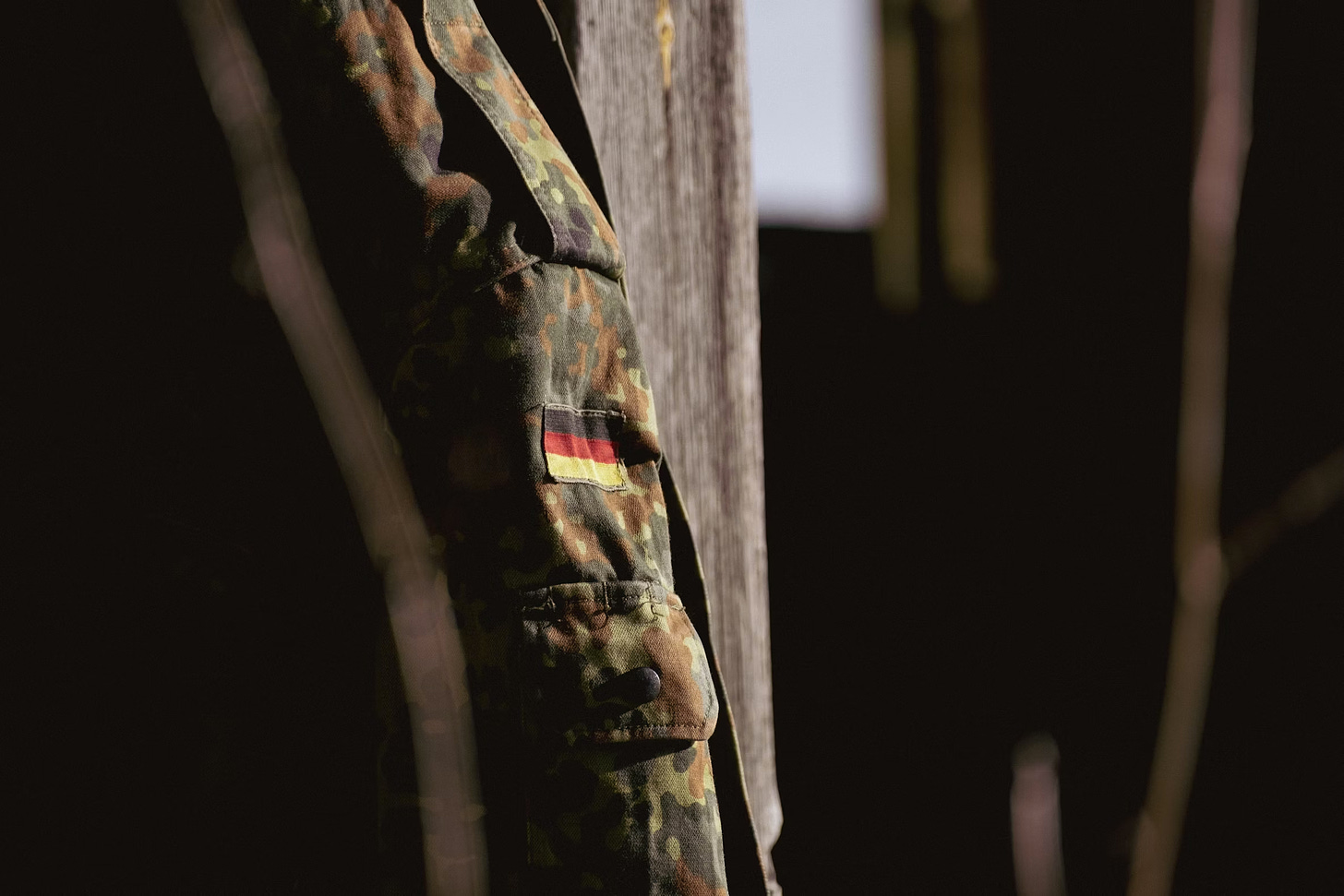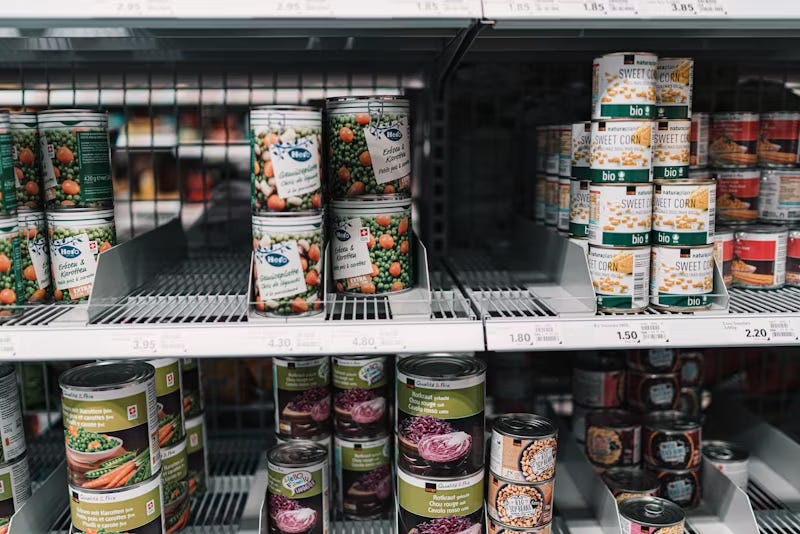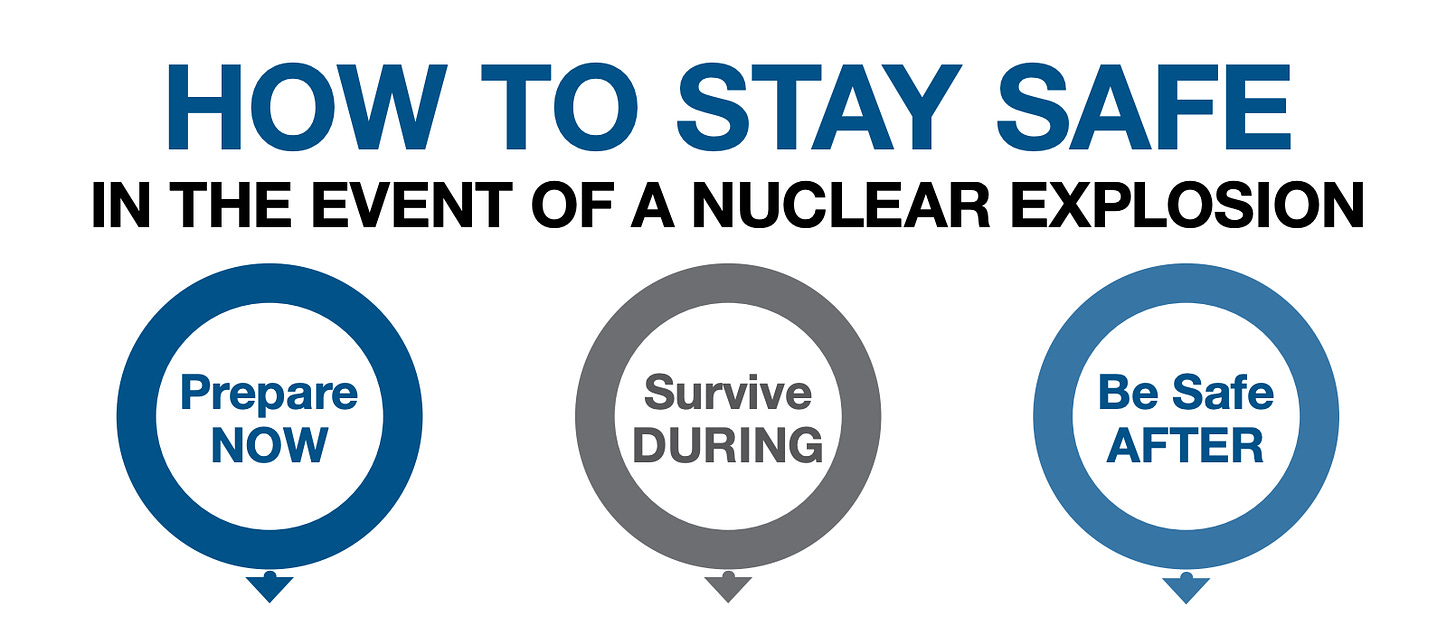Seriously... Governments around the world are telling citizens to prepare for war
You don't need a high-tech mountain bunker to get ready for a potential crisis. The time to start is now.
We may be closer to World War 3 than at any other time in history. At least that’s what many political commentators are warning.
President Biden’s recent authorization of the use of American weapons to strike inside Russia, Russia’s possible ICBM installations in Mexico, Iran’s continued stockpiling of enriched uranium, and North Korea’s recent launch of military reconnaissance satellites are just a few examples. For the first time in decades, the threat of nuclear war is being discussed more seriously — and more openly.
Across Europe, countries are making plans to get their populations ready for conflict. Last week, Germany updated its ‘Framework Directive on Comprehensive Defence’ — a 67-page plan outlining the measures the country would take during a military conflict. The document was originally adopted in 1989, but the new update notes that Germany's security policy environment has changed fundamentally since then, and that “Russia's war of aggression against Ukraine” has put Germany under military threat for the first time in decades.
As CNN reported, this new plan of action notes that Germany would reinstate mandatory conscription into the army and demand that skilled laborers aged over 18 work certain jobs, “including in bakeries and post offices – as well as being prevented from quitting their jobs. Doctors, psychologists, nurses, and vets may also be repurposed in military and civil service roles.”
Rationing would also be brought in. In the event of dwindling food supplies, the government would stockpile food to provide citizens with “one hot meal a day” for an undisclosed period of time, according to the document. Federal reserves would include foods like rice, pulses and condensed milk.
Other key resources such as petrol and oil could also be rationed with coupons if they become scarce.
It also outlines civil protection measures including transforming underground subway stations into makeshift bunkers and preparing hospitals for an influx of patients.
Other European countries have produced public awareness campaigns aimed at preparing their citizens for armed conflict as well as other natural emergencies. In 2021, Sweden produced a brochure called If Crisis or War Comes, which was sent to all households in the country.
“The last time a brochure was sent out was in 1961, during the Cold War,” notes MSB, the Swedish Civil Contingencies agency. “Later on, information could be found in the phone book.”
The 2021 brochure contains detailed advice and checklists for home preparedness, including stocking up on non-perishable foods, placing strong plastic bags in the toilet bowl should the flush stop working, and what to do if you hear the nationwide outdoor warning system.
Norway produced a similar brochure with advice for citizens on emergency preparedness. While the guidance is what you might expect, what’s notable about both Norway and Sweden’s documents is how forthrightly they talk about not just storms and natural disasters, but also “sabotage, technical problems, terrorism, or acts of war.”
The UK government shares information to prepare citizens for emergencies, inform them about hazards — from floods to wildfires and terror attacks — and encourage them to get involved in their community.
Ready.gov is the US government’s emergency preparedness program. Our government has produced information sheets for the following specific scenarios:
The nuclear explosion fact sheet explores ways to stay safe in the event of a radiation emergency. Recommendations include keeping aside a spare change of clothes for each family member, a trash bag for contaminated clothing, and sealed food, water and medicine. Take cover, protect your skin, and stay hydrated.
Some of the information in the State Department’s Personal Preparedness Plan to prepare for an unexpected departure from post may be useful in the event you and your family need to flee from conflict, although it is written specifically for overseas government workers and embassy staff.
The guide recommends preparing a ‘go-bag’ and a 72-hour shelter-in-place kit for yourself and your family. “The kit is useful in case you are restricted to a specific location during an emergency. It should include: food, clothing, water, medication, cash, supplies, and important documents.”
Fearmongering is not what we’re about. But we are about opening eyes and taking action. If you haven’t made any preparations — hey, it’s not too late. There are tons of books, websites, and useful videos that can get you started. But first and foremost, being mentally prepared is half the battle, so don’t stick your head in the sand.







What they were planning in 2016 is coming to fruition. Yippee-ki-yay MF, the elites are making up for lost time on making lots of blood money.
USA oks bombing Russian land: Russian fleet now sailing into western hemisphere.